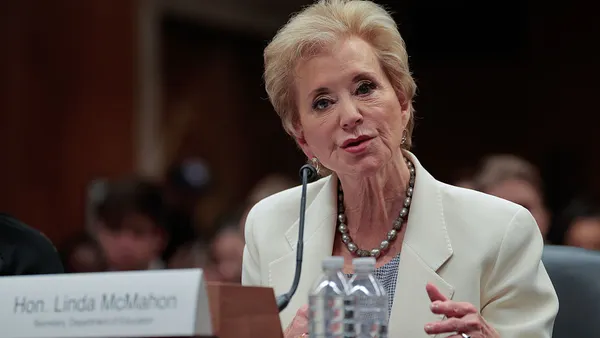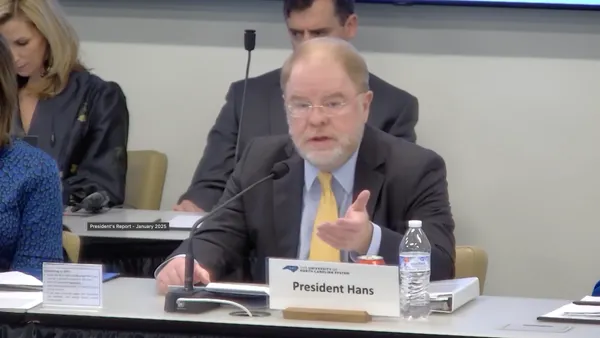The Education Department is "not wedded" to the language it issued in proposed regulations being debated in an ongoing negotiated rulemaking process, Diane Auer Jones, the department's principal deputy under secretary, told an audience of accreditation professionals in Washington on Tuesday.
"Clearly we came to the table with some very provocative ideas," she said at the annual meeting of the Council for Higher Education Accreditation (CHEA). "We just wanted to open the conversation."
One area where Jones said she has heard "consternation" from stakeholders is around the definition of regional and national accreditors. The department has proposed a three-to-10 state range for regional accreditors, which has caused some pushback. (Regional accreditation often is seen as more reliable than national accreditation and means student credits transfer more easily.) Jones said the department is not committed to the definition it proposed but rather was exploring whether accreditors would be better defined by mission as opposed to geography, as they are currently.
"We are not suggesting any of the regional accreditors should change their footprint, at all," she added.
Jones similarly said the department expects to maintain a definition of the credit hour, though it removed the Obama-era definition in its proposals. In its proposal, the department said it is "interested in feedback about how to create standards or guidelines that ensure quality, protect taxpayers, and do not limit innovation." The final regulations could end up including multiple credit hour definitions to reflect the variety of educational models, such as competency-based education, Jones said.
Likewise, the department has already delayed implementation of an Obama-era rule around state authorization that would require online programs to show they are approved in each state they enroll students. Jones said "of course" the department does not expect state authorization to be nixed entirely from the final regulations.
"Clearly we came to the table with some very provocative ideas. We just wanted to open the conversation."

Diane Auer Jones
Principal deputy under secretary, Education Department
Yet some speakers at the CHEA event acknowledged a wariness of a heavier government hand in their work.
"There is this sense that accreditation is linked to the status quo," said Jean Wyld, a professor emeritus at Springfield College, who serves on CHEA's board. She also noted a public perception that accreditors are a "small club" who take care of their members rather than students.
"Imagine what's going to happen if we don't change," said James Gaudino, president of Central Washington University and a CHEA director. He invoked the possibility that accreditors could be pushed "out of existence" by for-profit organizations or "quasi-government" entities. "I don't think anyone wants that," he said, adding that if accreditors don't take action as a group to change, federals regulators may force it upon them.
"It's a dangerous time," Gaudino said. "We need to come together to shape the way accreditation changes."
Challenges for accreditors include resources, especially as state funding for higher education declines and the need for new kinds of education increases as the types of jobs generated by the economy change. In that context, accreditors play a key role in helping students assess the value of their education. Wyld described accreditors' value to students and colleges as a "reliable authority on institutional quality."
As such, low-quality education that gets an accreditor's green light can raise questions about that organization's value to the public. Accreditors themselves see that danger.
"We've lost the narrative," said George Pruitt, president emeritus of Thomas Edison State University, who also serves on CHEA's board. "Both parties are mad at us, both parties don't understand us." And members of both parties, Pruitt added, have proposed rule changes that would "destroy us."











